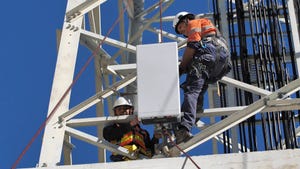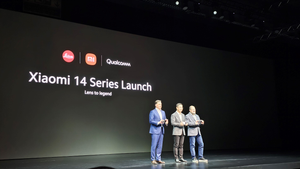
Also in today's EMEA regional roundup: Nokia lands 5G deal with Zain in Saudi Arabia; Interxion to raise $291 million; telcos miss out on enterprise opportunities; Vodafone and the world's smallest soccer league.
Ericsson is continuing to make inroads into the automotive 5G sector, announcing a tie-up with Telefónica Germany to facilitate car production through a private 5G network at Mercedes-Benz's Sindelfingen plant in southern Germany. Secure 5G technology will help control all the production systems and machinery at "Factory 56," providing gigabit data rates and "almost real-time" latency. Just last week Ericsson announced a similar venture involving Vodafone and eGO, an electric car company also based in Germany. (See Eurobites: Ericsson, Vodafone Take a 5G Front Seat With eGO and Telcos & Enterprises: 5G Friends or Foes?)
Nokia has landed a 5G deal with Zain in Saudi Arabia, with the Finnish vendor contracted to supply 5G RAN, backhaul, security and other services. The three-year deal forms part of Saudi Arabia's Vision 2030 program.
Closer to home, Nokia has signed a cooperation agreement with cargo handler Kalmar and network provider Ukkoverkot which will see Nokia design, build and operate a private LTE network that will be used by Kalmar for research and development purposes.
European data center operator Interxion is raising $291 million from a new public offer of 4 million shares. The company plans to use the proceeds for "general corporate purposes, including funding for land bank development and its currently planned and future data center capacity expansion projects, working capital needs and the repayment of short-term indebtedness."
Telecom operators are in danger of missing out on enterprise opportunities worth as much as $3.6 trillion by 2022 because of under-investment, bureaucratic processes, dependence on aging IT systems and a lack of appropriate partners. That's the broad conclusion of a new study from BearingPoint, a consulting company that also develops a digital platform for service providers. Its survey considered feedback from 250 decision makers at enterprises across Europe, Asia and the US, and examined the approach that 100 communications service providers (CSPs) are taking to the enterprise market. "CSPs must act quickly -- if not, they stand to lose out to more agile and open competitors," said Angus Ward, the CEO of BearingPoint's digital platform solution unit. A full copy of the report can be downloaded here.
VEON, the Amsterdam-based but Russia-focused operator, has found $136 million to settle its dispute with the Egyptian Tax Authority, clearing the way for it to buy the 42.31% of its Egyptian subsidiary, Global Telecom Holding (GTH), that it doesn't already own.
Telia Company has begun live 5G testing in Denmark, making use of an antenna mounted on the roof of its Copenhagen office. The tests will be carried out with Nokia and TT-network, the infrastructure company of which Telia Company owns 50%. Two more test sites will be established during the summer.
KPN has been apologizing to its customers and to "the Dutch society" as a whole after the nationwide outage on Monday that afflicted its mobile and fixed-line voice networks, including access to the emergency services via the 112 number. In a statement, KPN said it "will undertake an extensive evaluation of this disruption, also with an external independent party, so that the correct conclusions can be drawn and to ensure that this kind of incident can be prevented in the future." Initial investigations have led the operator to believe the fault lay in its routing platform.
Virgin Media, the UK-based cable operator, is trialing the use of high-capacity millimetee wave radio technology as part of plans to to bring high-speed broadband to Greenham, a village near the market town of Newbury. The radio technology, supplied by Ericsson, is used for the backhaul connection, linking two "trunk" points over 3km with a 10Gbit/s signal (see below). The microwave unit in the village is connected to a local distributed access architecture (DAA) cabinet, with gigabit services delivered over fiber connections to the 12 homes taking part in a services trial. Figure 1:

EE, the mobile operator owned by BT and plugged mercilessly on British TV by US actor Kevin Bacon, has announced a new range of home broadband plans that include Apple TV 4K and access to pay-TV channel BT Sport. The packages start from £37 ($47) a month.
Vodafone is hoping for some Local Hero-type feelgood factor from its decision to become the official 5G sponsor of what is claimed to be the world's smallest soccer league, on the Isles of Scilly, which are to be found 45km off the coast of the UK's most westerly county, Cornwall. There are only two teams in the league, Garrison Gunners and Woolpack Wanderers, so they play each other every week, usually only in the presence of a stray birdwatcher or a passing sheep. Drawing on 5G technology, which will reach the Scilly Isles on July 3, the league will see the launch of the first ever crowdsourced fan-assisted referee (FAR) system later this year, giving supporters elsewhere on the island the chance to have a say on key decisions during a game via their smartphones. If it's anything like the VAR system that is currently wreaking havoc at the Women's World Cup in France, it could get messy. This charming little video explains all.
— Paul Rainford, Assistant Editor, Europe, Light Reading
Read more about:
EuropeAbout the Author(s)
You May Also Like












